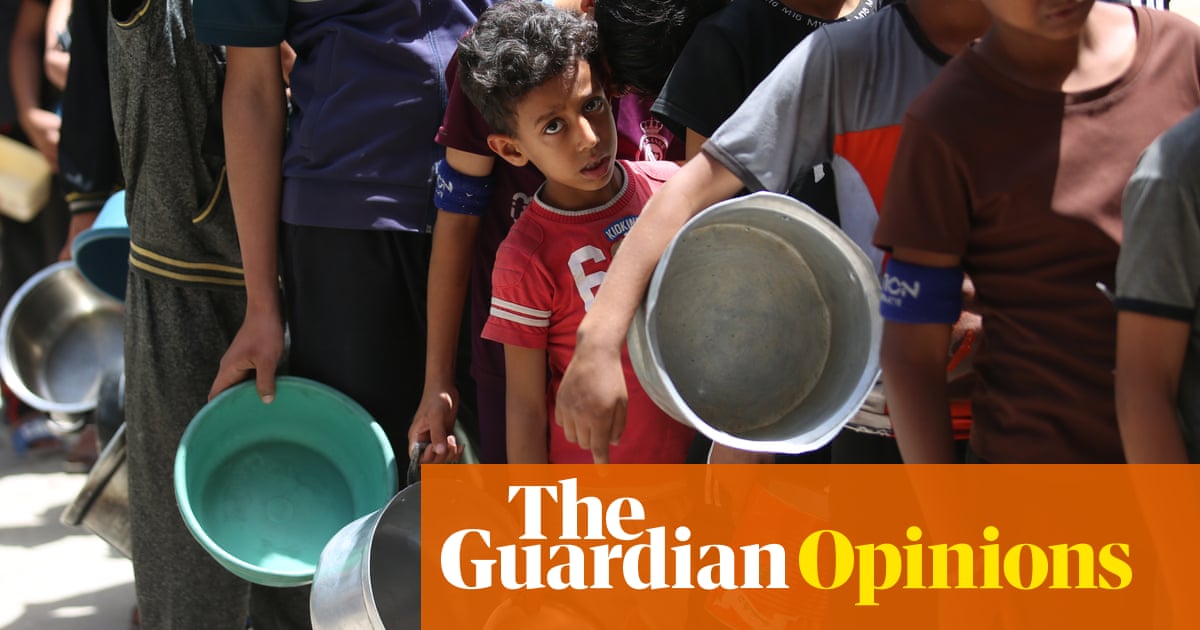The UN humanitarian chief Tom Fletcherfears that thousands of babies are at imminent risk of deathin Gaza unless aid reaches them. Benjamin Netanyahu fears that foreign politicians could see too many pictures of Palestinian children like these.
Two months after all supplies were cut off, the Israeli government denies the obvious truth: that Gaza is on the brink of famine. But on Monday night the prime minister announced that “minimal” aid deliveries would restart,sayinghis country’s “greatest friends in the world” had told him that they could not “accept images of … mass hunger”. His entirely cynical response saw a handful of trucks permitted to cross; reportedly, 100 a day will now be allowed – grotesquely inadequate given the vast scale of need. Reaching the most vulnerable will be perilous and difficult anyway amid Israel’s intensified offensive. Mr Netanyahu vowed that Israel would “take control” of all of Gaza.
His words show both that western allies can shift Israeli behaviour, and that they are insufficiently willing to do so. The trickle of supplies is meant toensure the continuationof a war that enables his political survival, but has killed more than 53,500 Palestinians. That death toll may be a grave underestimate, say researchers.
Foreign leaders are finally stirring as Palestinians starve and the enormity of Israel’s plan sinks in. Britain, France and Canada havedescribedconditions in Gaza as intolerable and threatened further “concrete” actions if Israel’s “egregious” campaign continues and aid restrictions are not lifted. An unrepentant Mr Netanyahu accused them of “offering a huge prize” for the murderous Hamas attack of 7 October 2023, which triggered Israel’s assault. In a separate statement, 23 countries including Australia and New Zealand condemned the aid blockade and military offensive. On Tuesday, the European Commissionlaunched a review of trade ties. Relatives of Israeli hostages haveagain pressedfor a ceasefire and release deal. Outrage has broken through in mainstream domestic politics, with Yair Golan, leader of the Democrats,sayingthat Israel was “on the path to becoming a pariah state”.
The growing condemnation is spurred not only by the grotesque suffering in Gaza and ministers’ explicit calls for ethnic cleansing but also by a new distance between Mr Netanyahu and the Trump administration. Donald Trump didn’t bother stopping in Israel and repeatedly overrode its interests – on Syria, on the Houthis and on Iran – on his Middle East tour. He has emboldened the Israeli government’s annihilationist approach and would be happy to see a Gaza without Palestinians, but may betiring of the conflict. Marco Rubio, the secretary of state, reportedlycalled Mr Netanyahu three timesin 24 hours over the aid blockade. The limited return on his efforts shows that the shift in approach should not be overstated. Strikingsupport for Israel enduresin Washington even as other governments – and American voters – think again.
Others must match rhetoric with action. The UK foreign secretary, David Lammy, condemned the “repellent” words of the extremist minister Bezalel Smotrich. But suspending trade talks is barely a start. The same goes for the sanctioning of settler activists: David Cameron has said that as foreign secretary hewanted to impose sanctionson Mr Smotrich and his colleague Itamar Ben-Gvir last year. The UK should follow the example of France, which has said it is “determined” to recognise a Palestinian state. Most of all, it should ensure that no arms,including parts for F-35 jet fighters, continue to reach Israel. Until it does so, it will be complicit in these crimes.
The US has the ability to stop the slaughter and achieve a desperately needed ceasefire. But pressure from other allies can make a difference. If they care about saving lives – and not just their own optics – it is time for decisive action.
